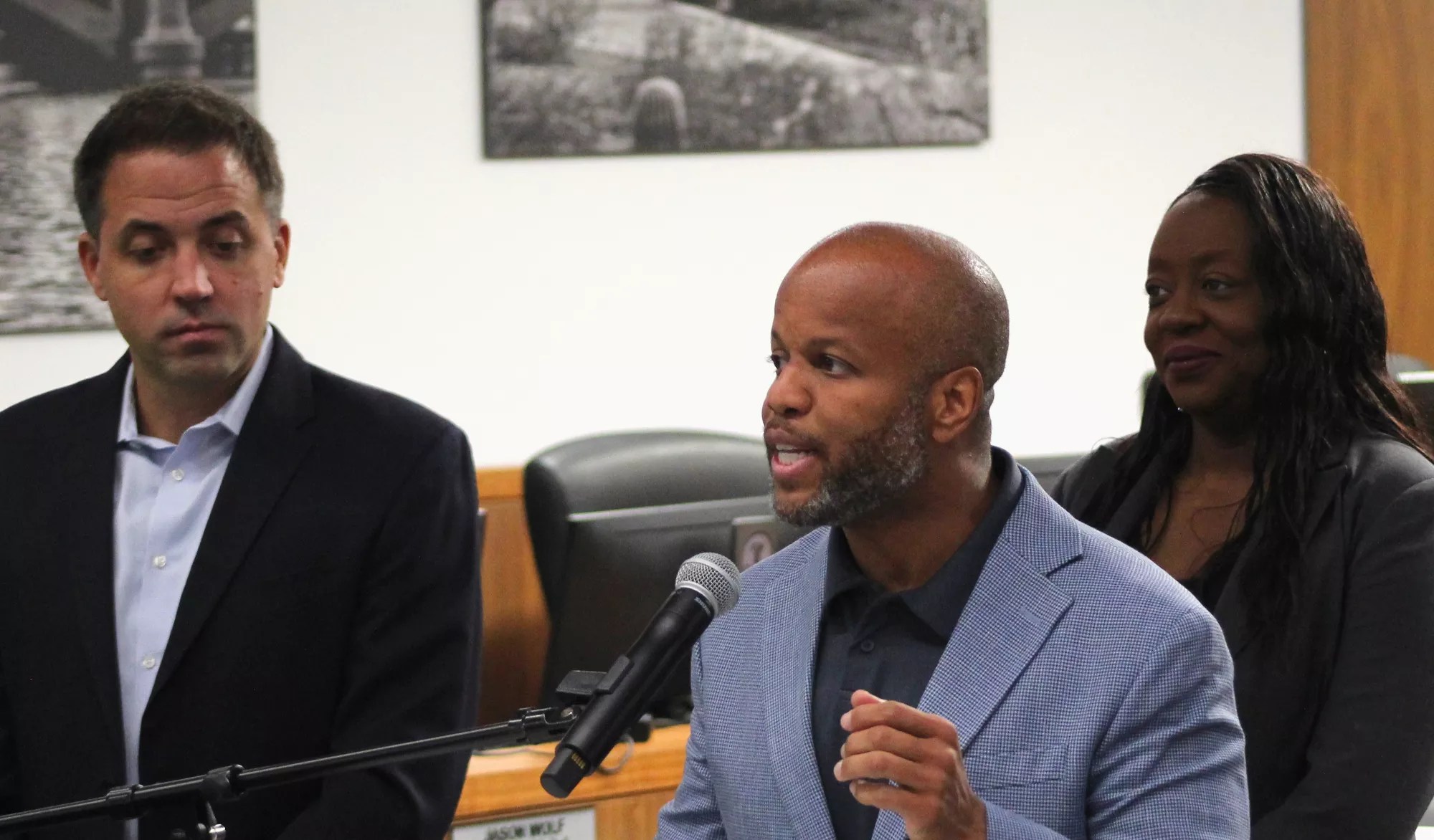
TJ L’Heureux

Audio By Carbonatix
On July 1, the Tempe City Council unanimously passed an update to its ordinance requiring permits for the use of public parks – but only after its members sat through six hours of overwhelming opposition voiced during public comment. A total of 77 people spoke out against the change, which many said they fear would infringe upon free speech and target groups that help unhoused people.
They also criticized the city for ramming through the change at breakneck speed, without meaningfully consulting the public. The proposed new ordinance was introduced on June 2 and approved a month later, a rapid process during which the city did not engage residents beyond allowing them to comment during two public meetings.
Last week, though, Tempe Mayor Corey Woods defended to Phoenix New Times both the rushed process and the relative lack of community buy-in. Woods said the council did not meet with anyone “specifically about this ordinance,” which a coalition of groups is now seeking to overturn via voter referendum. Woods said he “met with some of these same community members that are involved in this referendum about various other issues.”
The council had to move fast, he claimed, because of an ongoing lawsuit brought by three community organizers. Ron Tapscott, Jane Parker and Austin Davis say the city infringed upon their rights by enforcing the old version of the ordinance to curb events set up to help unhoused Tempe residents.
“That was really the biggest issue,” Woods said. “The challenge was, when the lawsuit was filed – and obviously the folks who filed it sought a preliminary injunction – at that point, you’re no longer sort of on the city of Tempe’s time. You’re on a court’s time and a judge’s time, so that necessitated actually bringing this forward on an accelerated timeline.”
Woods did not specify what about the lawsuit mandated a rapid change to the city ordinance. On June 5, the city informed the judge in the case that it was working on a new ordinance that it argued might render the case moot, though the plaintiffs in the case clearly disagree. As the case plays out, the city agreed not to enforce the older ordinance while it worked on passing an updated one. A trial date has not been set.
Tapscott and his lawyer, Russell Facente, rebutted the idea that the city had to move quickly because of the lawsuit. They say the city could have sought feedback on the ordinance as early as September, when Facente believes Tempe began working on the change to the ordinance.
“The timeline set by the court still allows the council months more time to develop the ordinance before it would affect the civil case,” Facente told New Times. “That’s plenty of time for community input, which should have started back in the fall of 2024 when the city began to write the amendment.”
Tapscott agreed.
“They’ve had more than enough time to involve the neighborhoods and the community in this discussion,” Tapscott told New Times. “This once again is an example of the city council working in the dark and in secret regarding decisions impacting the community.”

Tempe residents gather before a city council meeting to oppose a proposed new ordinance that would place new restrictions on public gatherings.
TJ L’Heureux
Referendum campaign in full swing
Tapscott’s “in the dark” comment referenced secret (and illegal) meetings the council held in 2022 to discuss opposition to a hockey arena development proposal. The Arizona Attorney General ruled the meetings violated Arizona public meetings law. Tempe voters ultimately rejected the arena plan in a May 2023 referendum after a major organizing effort against the plan from organizations such as Tempe 1st, which Tapscott leads.
Dillon Wild, co-chair of the Phoenix chapter of the Democratic Socialists of America, compared the arena debacle to the council’s rush to pass the permit ordinance.
“Tempe City Council learned some lessons from the Coyotes campaign and, in my opinion, made a concerted effort to move this as fast as possible because they knew it was going to be unpopular,” Wild said.
In addition to concerns about the quick process, residents also raised concerns over the ordinance’s vague and confusing language and the potential for civil rights abuses. Democratic state Sen. Lauren Kuby, a former two-term member of the council, said the ordinance is out of step with the Arizona Constitution’s guarantee that the right of the people “peaceably to assemble for the common good shall never be abridged.”
The day after the council voted unanimously to approve the new law, activists filed paperwork to begin gathering signatures to put the new law to a referendum, which would allow Tempe voters to decide whether or not it should remain in place. A coalition of organizers – including members of the DSA Phoenix, the Arizona Young Democrats, Tempe 1st, New Deal Meal, AZ Hugs and Tempe Neighborhoods Together – has until Aug. 1 to gather 2,440 signatures. All signatures have to be from and gathered by Tempe residents.
Last week, organizers told New Times they had already gathered hundreds of signatures and are looking to gain more volunteers to table outside local businesses and knock on doors. In the Valley’s extreme July heat, that’s not a task for the faint of heart – but with hundreds coming out to protest the law being considered last week, it’s one that to Wild is “still looking very winnable.”
If the groups reach the signature threshold, the council will approve the referendum for Tempe’s March 2026 election ballot. Woods welcomed the effort.
“There’s a referendum system there for a purpose. People are allowed to express their First Amendment rights if they choose to, if they have a concern about an action the council has taken,” Woods said. “I know that activity is going on right now and we’ll have to see if they are successful in putting that item on the agenda.”